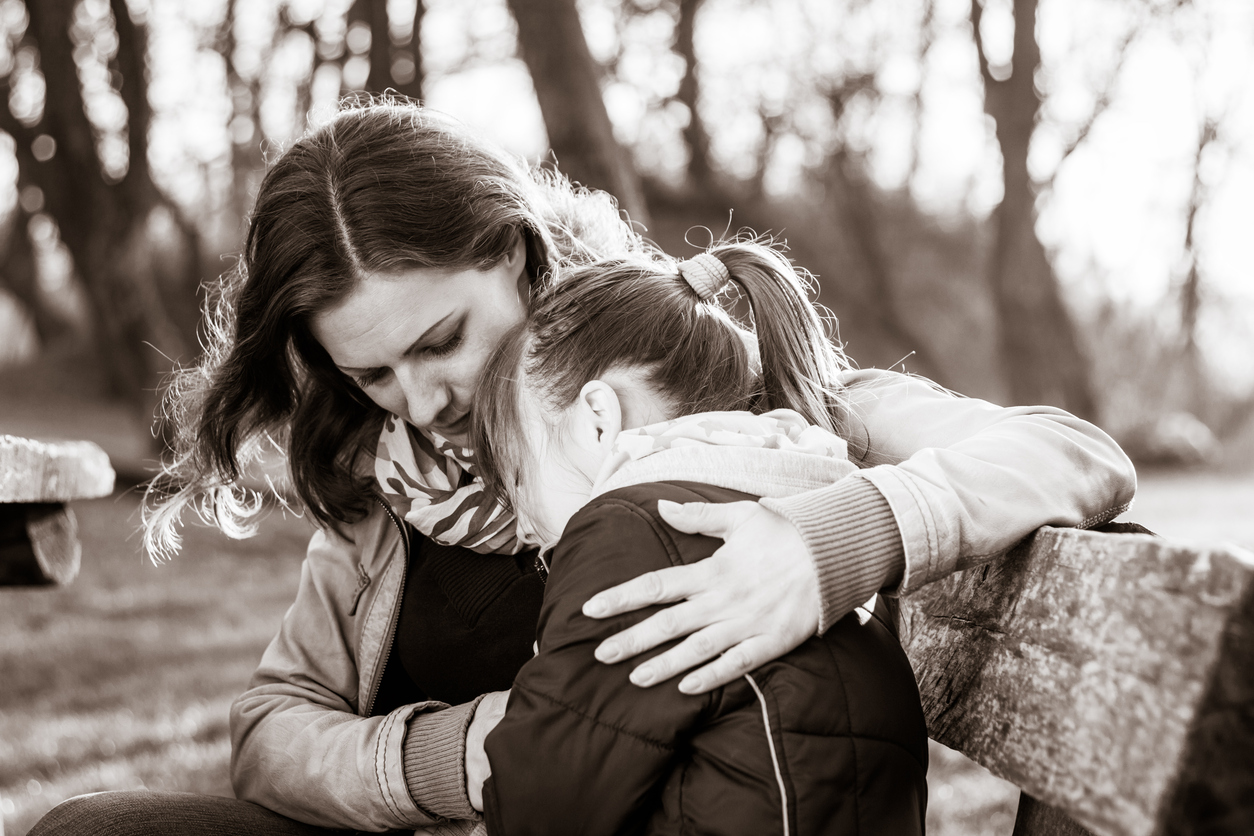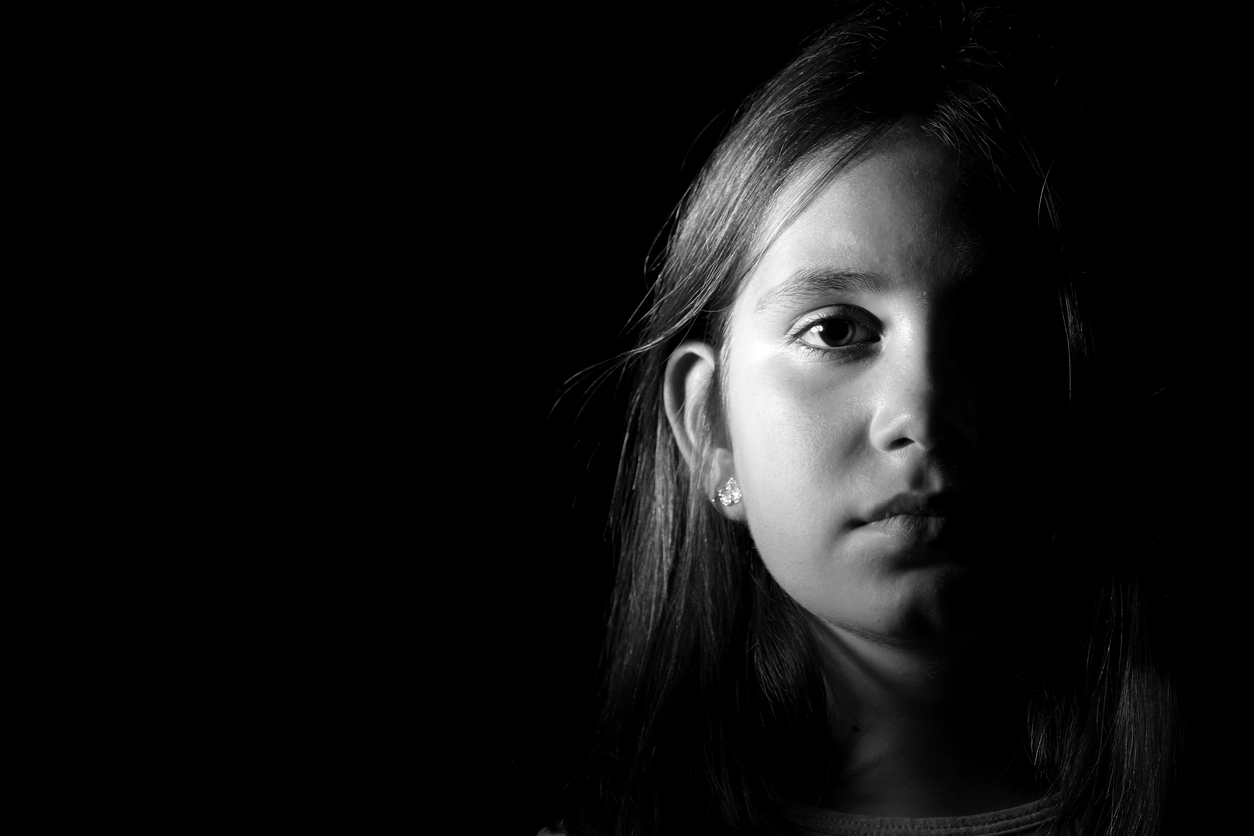How to Talk to Your Children About Death
On February 26, 2009, my sister and only sibling committed suicide.
In the immediate aftermath of her death, while shock was still setting in, I had to figure out how I was going to tell my children that their beloved aunt had died, and I had to figure it out fast. I let their father feed them dinner while I Googled “how to talk to preschoolers about death”, as my children were 4 ½ and 1 at the time.
Truthfully, I don’t remember much of what I told them. I remember trying to be honest and straightforward, while at the same time trying to shield them from the graphic details. I remember crying but not sobbing. And I remember having to answer questions for a long time after. Actually, I’m still answering their questions, as best I can.

Death is an uncomfortable topic of conversation for most people, and yet, the death of a loved one is one of the few experiences that is nearly universal. Because it is distressing, you don’t want to think about discussing death with your children; unfortunately, this can leave you unprepared when you are faced with your children’s questions and grief. You need to be prepared because even little children know something has changed in their lives. They are aware of far more than you realize.
In writing this article, I reached out to Daralynn Deardorff, DO, a psychiatrist at the TCU Counseling and Mental Health Center and the mother of my children’s friends. She and I discussed how I had approached my sister’s death with my children, and she gave me some useful advice which I now pass on to you.
**Please note that this is an extremely important topic that cannot be boiled down to a single blog post. How you discuss death with your children depend on their ages, your experiences, and your belief systems. This is simply a list of things that I found helpful when I was faced with this situation. I have included links at the end of this post that are more in-depth.**

Be Simple
Children are extremely literal creatures. They do not understand euphemisms and figures of speech. When a friend had to euthanize the family dog, she lovingly explained to her four-year-old that Bingo has “been put to sleep”. After a few weeks, when Bingo did not reappear, her son began refusing to go to sleep at night. Bedtime became a battle. It turns out that her son thought that if he went to sleep, he would disappear like Bingo had done. As difficult as it may be, don’t use euphemisms for death.
Don’t Lie, But Edit for Your Audience
While you shouldn’t use euphemisms to talk about death to your children, young children don’t need to know the gory details, if there are any. If Granny has died in her bed at age 99, that makes it a little easier for you. But if the loved one’s death was not in their bed at age 99, don’t go into detail. Children have beautifully active imaginations, but this can cause them to have nightmares. Also, be very, very careful discussing the details with others – make sure your children are nowhere near when you do. Even overheard, disconnected details can be traumatic to young imaginations. As they get older, children are more capable of handling the whole truth. I only told my older daughter that her aunt had committed suicide when she was 11; she was not able to handle it before then.
Be Prepared for a LOT of Questions
Children are not able to comprehend the permanence of death until they are around eight. Death’s immutability simply isn’t part of their concept of the universe; death is temporary to a four-year-old. My younger daughter was only one when her aunt died. Over the years, she would, out of the blue, ask about her aunt. For a grieving adult, that can be very painful, but the questions aren’t meant to hurt you; they are simply the child’s way of trying to understand. Listen carefully to the questions being asked and answer exactly what is being asked, no more. “What happens when you die?” from a preschooler means exactly that. While adults might interpret that as a question about Heaven or the afterlife, the child just wants to know what happens to your body after death. Don’t overwhelm them with words. Be succinct.
Of course, the way that you choose to discuss death depends a lot on your spiritual beliefs; answering a preschooler’s “Where did Grandpa go when he died?” will depend on what you believe. Whatever your answer, be prepared to answer it again. And again. And again.
Let Your Children See You Grieve
Please, let your children see you cry. Not the great, wracking wails of initial grief; that can scare them. But letting them see your tears is actually a good thing. They see that crying is a natural reaction to loss. Emotions can be very scary things, and seeing an adult cry lets the child know that tears are an entirely appropriate reaction. In addition, letting them see you grieve might make it easier for them to grieve. For, while the way they grieve manifests in different ways depending on their ages and stages of development, they will grieve.
Above All Else, Reassure The Child
The death of a loved one upsets the routine of a child’s life. A child, especially a young child, may need reassurance not only that they are loved, but that their basic needs will be met. I was cooking dinner when my mother called to tell me of my sister’s suicide. I couldn’t face anyone and excused myself to my room. I overheard my older daughter asking what was wrong with Mommy. Upon being told that Mommy had received some bad news and needed some time alone, my daughter asked, in a panicky voice, “But who will finish making dinner?” Reassure them. Hug them. Let them know that no matter what, someone (don’t promise that you will, just someone) will always be there to take care of them.
Discussing death with your children is distressing and uncomfortable and sometimes painful. Unfortunately, no matter how much you want to, you cannot shield your children from death. Make a plan now, a plan that can be adapted to your children as they grow up. Below are some links that are good resources that can help you formulate your plan and will provide answers to questions that I have not covered.
http://kidshealth.org/en/parents/death.html#
http://www.cc.nih.gov/ccc/patient_education/pepubs/childdeath.pdf
http://www.babble.com/kid/explaining-death-to-kids-coping-with-loss-grief-counseling/
 Lee Virden whose sister, Rachel, is pictured to the left, is a mother of two and a writer.
Lee Virden whose sister, Rachel, is pictured to the left, is a mother of two and a writer.



 Sign in
Sign in


Thank you Lee.
Great advice on a difficult topic that can’t go unaddressed.